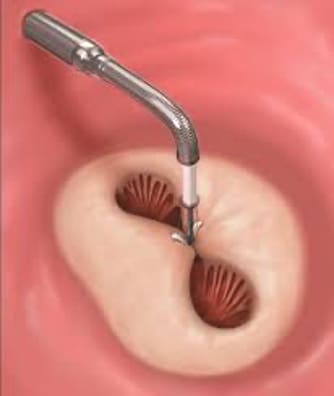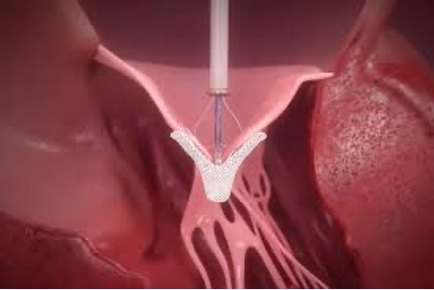Transcatheter Mitral Valve Repair (MitraClip)
What is MitraClip?

MitraClip is a minimally invasive procedure designed to treat mitral valve regurgitation, a condition where the heart's mitral valve doesn’t close properly, causing blood to leak backward into the heart. This can lead to symptoms like shortness of breath, fatigue, and swelling in the legs.
Percutaneous repair of the mitral valve involves placing a small device, called the MitraClip, on the mitral valve to help it close more tightly. This helps reduce or eliminate the backward flow of blood, improving heart function and reducing symptoms.
You might be considered for the MitraClip procedure if you have significant mitral valve regurgitation that isn’t responding well to medication or other treatments, and if you are not a good candidate for traditional open-heart surgery.
How is MitraClip performed?

Percutaneous mitral valve repair is performed under general anesthesia, under guidance of a special echocardiogram (transesophageal echocardiogram.
A catheter is inserted through a needle puncture in a vein in the groin and guided into the heart. The MitraClip is then carefully positioned and attached to the mitral valve.
After the procedure, patients spend some time in a recovery area. Most patients can return home within a day or two.
